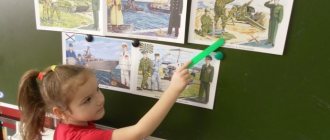Congratulations on Teacher's Day from children
Please accept congratulations
Teachers and nannies, And of course, cooks, Congratulations right from the early morning!
A good holiday is on the doorstep, The best day of the year, And a sea of warm smiles as a reward for your work!
Teacher's Day
Teacher's Day! Teacher's Day!
We would like to congratulate everyone on this holiday to everyone who works diligently with us, in the kindergarten that we love!
You greet us every morning, your smiles are like sunshine. We will listen to you, we will try, Let the teachers be proud of us!
We say thank you
We say thank you to the teacher and the nanny. We thank you now for your love and attention.
We promise to eat porridge in a quiet hour and sleep obediently, We love you, we wish you happiness, you should know about this.
We express our gratitude
We eat deliciously, play, go to bed at the right time, and express our gratitude to all the employees now.
For your support and care, for your desire to help and for doing your job perfectly!
You care about us
You take care of us Every day and every hour, Again giving us warmth, Fairy tale, joy and dream.
Happy holiday now. We all congratulate you, our teachers, we know for sure, the highest class!
Congratulations!
We love the teacher and we adore the nanny. And on a wonderful holiday, we warmly congratulate them!
We wish you a lot of joy, success without fail. Give us sweets more often, Caring daily!
Our teacher!
Who will teach strong friendship, Share a game with a neighbor, Carefully eat all the porridge? Our teacher!
With whom to sculpt mushrooms and the sun, to draw flowers in the window? Who will sing and recite poetry? Our teacher!
Who will console, regret, Who will teach you to become kinder? The beloved garden is more beautiful with her, With our teacher!
Holiday in kindergarten
Today is a holiday in kindergarten, the teacher is in plain sight.
Receives congratulations, dreams about his worldly things...
Let the dreams of the country's educators come true!
Kids wish
We learned letters with you, We drew a surprise for mom, We didn’t sleep in the quiet hour, So that we could congratulate you.
We love you very, very much. Your work is, of course, difficult. But the kids only want happiness for the soul.
Favorite teachers
We congratulate our loved ones in droves. Coping with all of us The work, we know, is not easy.
We want to say thank you and confess our love to everyone. You always go to kindergarten with a smile. You just want to go.
We wish you good health, smile, laugh. Give your tenderness and care, as before.
Diary of the best teacher in the country: 7 proven ways to get along with children
After five years of working in kindergarten, Evgeny Pepelyaev became the best teacher in Perm, and then in the whole country. Photo: Ksenia Tretyakova.
The country's best teacher, Evgeniy Pepelyaev from Perm, writes a blog in which he tells how parents should act in difficult situations and find the right answers to difficult children's questions.
When Evgeniy Vladimirovich was still a little boy, Zhenya, he, like many boys, dreamed of becoming a fireman or astronaut. After school I went to study radio physics, but very quickly realized that it was not for him.
“And then I accidentally saw an advertisement that specialists in working with children were needed. Something skipped a beat in my soul at that moment,” recalls Evgeniy Pepelyaev. - I decided to try it. I entered the pedagogical school and got a job in a kindergarten. And within five years he became the best teacher in Perm, and then in the whole country.
Evgeniy Vladimirovich writes a blog where he talks about how to get along with children and find answers to their difficult questions. Komsomolskaya Pravda has collected the most useful tips from teachers, which will certainly be useful to all parents of preschool children.
LESS SERIOUS, MORE PLAY
At the very beginning of my work, it seemed to me that you had to be very serious when communicating with a child. I'm an adult. But this approach doesn't work. Approach the solution to any problem with the game.
Let me give you an example. When once again few people in the kindergarten responded to the request to collect street toys, I decided to play with the guys. The bag of toys began to “run away” from them and they had to try to get into it. As a result, the toys were in a bag and the guys collected them.
Children will be happy to collect toys on a walk if the bag runs away from them. Photo: Ksenia Tretyakova.
Another example. There is a 4-year-old boy in the kindergarten who often disturbs the teachers, distracts other children, and is very noisy. He and I were building a shopping center using a construction set, and in the end he didn’t want to remove the cubes. Then we decided that the container was a dragon, and instead of cleaning it, we “fed” this dragon with construction set parts.
LISTEN AND HEAR
Physical education class is in full swing, and the boy Sasha is sabotaging the whole process. We left the hall. At first there was an idea to scold him, but he turned to the wall - he did not make contact.
- Sasha, don’t you want to study? Are you upset about something? - I ask.
— I didn’t have time to watch the cartoon.
— Are you upset because you didn’t have time to watch the cartoon?
- Yes. I had to go to kindergarten in the morning, and I didn’t have time to finish watching the cartoon.
- I understand, Sasha. It's very unfortunate that this happened...
And the child perks up a little. After a couple of minutes we return to the hall.
The algorithm is simple: in the dialogue, “return” to the child what he told you, while indicating his feeling. This is exactly how we managed to understand the reason for Sasha’s behavior. This technique allows you not to devalue the experiences of children, but to treat them with respect.
In the dialogue, you need to “return” to the child what he told you, while indicating his feeling. Photo: Ksenia Tretyakova.
QUESTION INSTEAD OF DIRECTION
One day I realized that I almost always address children in the imperative mood: get up, tie it, take it, come, move away. Rebuilding your habits turned out to be more than one day. And this certainly should have been done, since communication through questions presupposes a more respectful attitude towards the child, this is communication on an equal basis, not from the position of the main one, that is, an adult. Plus, it gives the child the opportunity to choose: agree or refuse.
- Do you need help or can you handle it yourself?
— Could you let me play with the constructor?
It works especially well with kids who are shy, timid, or those who need more self-confidence.
- You can…?
- Yes I can!
There is a nuance. When we ask, we may get a refusal, and we must respect the child's right to disagree with you.
GIVE THE RIGHT TO CHOICE
The most popular question from parents is: “How did my child eat?” Not all children have an excellent appetite. And at some point the idea arose to shift the responsibility for eating to them.
I tell my students this: if you want to eat, put some porridge, a casserole, pour some soup, spread butter on a bun, pour some cocoa. The child himself determines what and in what quantity he will eat. Some people like soup and eat it with extras, while others like salads or stewed cabbage.
What if the child refuses everything and remains hungry? Contrary to our fears, this never happens. When everyone around you eats together, your appetite wakes up on its own.
ALLOW TO BE ANGRY
One kid wants to take a train from another boy, but he doesn’t give it. The child begins to get angry and cry. I notice that mom is confused and tries to switch his attention to something else. In such a situation, it is more important to voice how the baby feels in this situation, and simply feel sorry for him and hug him. It is still difficult for him to cope with refusal and overcome his anger. If his mother just sits with him and talks through his emotions, the boy will calm down faster and go do other things.
DON'T DEEP YOUR CHILD'S EXPERIENCES
At first, the baby's crying made me feel helpless. I wanted to run and save the child. Or agree and allow him to do whatever he wants, as long as he doesn’t cry. The tears of children parting with their mothers were especially difficult.
We adults often want to protect children from the pain they encounter in life. And we are not talking about those cases when a child bumped or broke his knee. When a baby cries, we come up with 1000 and 1 ways to please him: give him something tasty, or ask another child for a toy so that ours doesn’t cry.
It is important for a child to have an adult nearby. Photo: Ksenia Tretyakova.
When a child cries, it is unpleasant, but if every time you immediately switch attention to a bright picture, give a tablet or promise candy, a person learns to escape from unpleasant experiences. And as adults, we then eat away the stress, sit in front of the TV, and go to the club to have fun. Anything to avoid being sad, angry, helpless.
What if you don’t shield kids from sad and difficult experiences? If you explain and just be there? My children incredibly surprise me with their resilience. And your?
TEACH TO SEE THE LIMITS OF ALLOWED
Sliding down the slide is a favorite pastime for children. In our garden there is a rule: we climb up the hill using the steps and slide down one at a time. We are waiting for the one that has rolled down to move away. We voice the rule and monitor implementation. If you violated the agreement, you will only be able to ride on the next trip. The violators tried to scream, swear, cry - all in vain. But the next day, everyone waited in line, rolled off, walked away and got in line again.
There should be boundaries and boundaries in children's lives. They serve them as protection and support.
ON A NOTE
— So that children listen to you and don’t play around, replace “no” with something more positive: with us they don’t run, but walk, don’t interrupt, but speak in turns, don’t take away, but ask permission.
- Explain to children the reasons for your actions and prohibitions: “no” - and further explanation why. This works much better than a flat refusal. Children are ready to believe in our adult reasons. When they understand the reason for our request or restriction, a certain logic is built in their minds. And the child is more willing to meet us halfway.
- When a child asks questions that perplex you, and you don’t know how to answer, you can tell him so directly about it - they say, you need to think about it. Take a break and then return to this conversation. Honesty and sincerity in communication are the foundation of mutual understanding.







